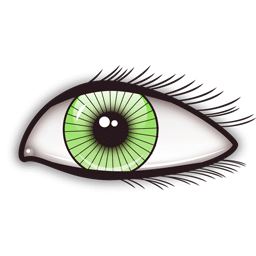Eleven
We’re programmed to live outside our heads.
 We’ll think about things when we need to, but that thinking will function within the parameters that genetics, upbringing, and environment have programmed into us. Most people never become truly self-aware. They never – or at least rarely – think outside of that programming.
We’ll think about things when we need to, but that thinking will function within the parameters that genetics, upbringing, and environment have programmed into us. Most people never become truly self-aware. They never – or at least rarely – think outside of that programming.
One exception is when you experience something like anxiety or depression, and that whole thought process turns inward. Then it becomes this scathing, torturous, unrelenting self-examination through every moment. Even the good times elicit that self-reflection and, as a byproduct of that, doubt and insecurity.
I’m not going to go into work too much – at least not now. It exists as this buffer where I’m compelled to project my thinking outward, to concentrate on the things I need to do, and (when necessary) talk to the people around me and become part of a world outside my head.
And it’s good. I have over thirty-five years experience as a writer – most of it frustrating, including toiling decades to get published, underperforming books, a screenplay that was plagiarized (and I don’t make that accusation lightly), and just the constant, exhausting struggle (that the bulk of writers will have experienced for themselves). When I can use that constructively and to benefit somebody else, it’s gratifying. Why not take what was shit for me, what was a precarious learning curve, and use it to fast-track and help others?
But that feeling of gratification only lasts so long.
Once I’m done for the day, the mind begins the journey back inward.
At home, I have minor distractions, like making dinner, or trying to watch a movie or a series. But they’re fleeting investments. Going back to writing – which occupies so much of my time – requires my head turn inward. And then it’s not only about exploring what’s there, but delving deeper – always deeper.
I’ve gotta get better than anything I’ve done before because what I’ve done before hasn’t been enough.
I’ve gotta find new ways to say things.
I’ve got to improve.
That hyper-sensitizes you to those blips that pop up on your radar of things that are unusual. When you live alone, those blips are LOUD. There’s nothing to draw you away from them. They ping, reverberate, then ping again, until my whole flat is just one oscillating vibrational warning that something is waiting and, given the opportunity (and time), it’ll appear.
As I lie in bed, I listen, waiting for a voice to speak in the night, and identifying and classifying any and every sound to compartmentalize them from my expectation – to dismiss them as potentialities so I can remain alert for something genuine when it appears.
The longer I don’t hear anything, the more the threat is diluted until my mind does wander, and in wandering it drifts off until it and my body shut down and I eventually flitter into one on my typically restless sleeps – but at least it is sleep.
The cycle from this point is accumulative, so with each night the threat (and expectation) grow progressively tempered until, inevitably, it’s defused.
At least for now.
Because every day restarts the cycle.
And every cycle adds to what’s come before.
